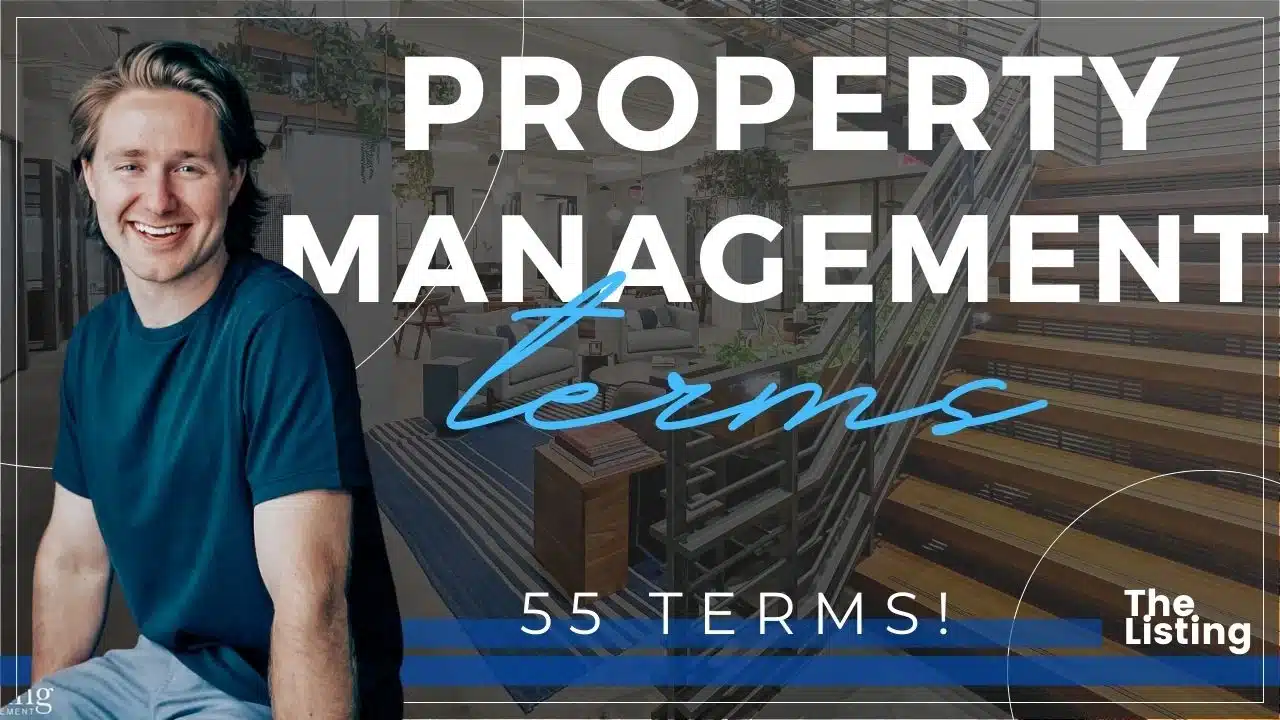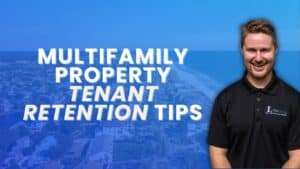Have you ever played golf blindfolded? Hopefully not. If the goal is to hit the ball as close to the pin as possible, swinging blindfolded is a lousy strategy. Buying a rental property or investment property with no knowledge of real estate investing or standard property management terms is the equivalent of putting a blindfold on when it comes to playing golf.
As a professional property management company in Orlando, Florida, we have learned the importance of educating ourselves on the 55 commonly used property management and rental investment property terms.
We are experts in the property management and investment rental property field. So, look at some of the most common terms you may hear when diving into property management and real estate investments.
55 Property Management and Rental Investment Property Terminology:
1. Rental Property: A rental property is a long-term rental property or can be a short-term rental home. Rental properties are typically acquired for investment purposes by real estate investors, but homeowners and accidental landlords commonly rent out their property as well.
2. Single-family Rental: A Single-family Rental, or (SFR) for short, is a single-unit property that a landlord rents. A single-family rental typically refers to a single-family home.
3. Duplex: A duplex rental property is a home split into two separate living spaces or apartments with an independent, private entrance.
4. Triplex: A triplex is a single property with three rental units. Each unit has its kitchen, bedroom, bathroom, and unit number.
5. Quadplex: A quadplex is a property that hosts four separate apartments or units. A standard quadplex is a block-style apartment building but can be arranged in several ways.
6. Apartment: An apartment is a private residence in a building or house divided into several separate dwellings; an apartment is typically part of a multifamily or multi-unit property.
7. Multifamily Property: A multifamily home is a single property in which more than one family lives in multiple separate units or apartments. We provide multifamily property management services in the Greater Orlando area.
8. Property Manager: A property manager is a person who manages a piece of property that is owned by another person in exchange for compensation. Some of their property management duties include accounting details, property maintenance, and collecting rent from the tenants.
9. Property Management Agreement: A Property Management Agreement is the contract that a property owner signs with a property management company. The property management agreement is responsible for defining all fees, duties, length of the contract, renewal and terms of the contract, and what happens if the contract is terminated early, and much more.
10. Property Management Fees: A rental property management company will charge fees associated with its management services. The standard property management fees are:
- Tenant Placement Fee
- Monthly Management Fee
- Lease Renewal Fee
11. Lease Agreement: A lease agreement between a landlord/rental owner and a tenant states what the tenant will pay monthly for rent, the tenancy rules, and how long they will occupy the property. Typically a standard lease agreement is for a 12 Month Term.
12. Tenant Screening: Tenant Screening is a process by the landlord or a property management company to verify if the potential tenant is qualified to rent.
13. Background Check: A professional property manager will conduct a background check for their managed rental homes. This is put in place to protect a rental property and residents living around the property. For example, you don’t want a criminal or sex-offender living in your rental home.
14. Rental History/Rental Verification: This is the most important aspect of tenant screening. Property management companies will look into an applicant’s rental history. Rental history can show a lot about a prospective tenant. For example, if they paid late every month and caused thousands of dollars in damage, you will not want this kind of renter living in your rental investment.
15. Rent Roll: A rent roll refers to a snippet or snapshot of the income of a particular investment property.
16. Market Rate: The market rate of rent means an agreed-upon price between the landlord and the property manager. Several factors influence a property’s market rent, such as; the physical location of the property, amenities, number of bathrooms and bedrooms, and much more, depending on its location and season.
17. Rent-to-Own: rent to own is an agreement between a landlord/property owner and a tenant agreeing to pay an additional monthly rent to go towards a down payment at the end of the lease term.
18. Build-to-Rent: This term is becoming more popular as real estate investors invest heavily in the build-to-rent sector. A build-to-rent property is precisely what it sounds like; the property was built to only rent as an investment property.
19. Virtual Tour: A virtual tour is usually a collection of panoramic or video tours performed by a property manager or leasing agent to display a rental property online.
20. Pet Screening: A pet screening is collecting information and validating Assistance Animal requests by the landlord or a specialized company to discover fraud and assess potential risks attached to each particular pet.
21. Landlord Tenant Law: Landlord-tenant law is part of the Common Law that outlines the responsibilities of a landlord to provide a safe and secure tenancy. Including the responsibility to preserve the premises in the tenant’s interest and commitment to deliver possession on the landlord’s side.
22. Rental Price Analysis: A rental price analysis involves a that reviews current market conditions and the features of your rental property to set an appropriate rental rate.
23. Lease Renewal: Once your tenant has occupied the property for the lease agreement term, you can offer them the option to renew the lease agreement. Typically the lease renewal term is for another 12-month term. In addition, rental property owners can continue their lease agreement if they have been quality tenants, or they have the opportunity not to renew their tenant’s lease agreement.
24. Co-Signer: A Co-Signer is a secondary signer designated to make the rental payments if the tenant does not pay. This provides additional assurance to the lender or landlord that they will be held responsible for the lease agreement if the tenant stops paying rent.
25. Eviction: Eviction is the legal process that allows landlords to force a tenant to be removed.
26. Equal Housing: Equal Housing refers to the idea that all persons should be granted “equal opportunities” regardless of race, gender, age, nationality, familial status, or disability when renting or purchasing.
27. Landlord Insurance: Landlord Insurance is an insurance policy designed to protect landlords from the financial risks associated with their rental property. These policies typically cover hazards such as break-ins, house fires, theft, and malicious damage.
28. Long-Term Rental: A long-term rental is often defined as anything rental property that a tenant signs a lease agreement with and will occupy the property for 6+ months. Depending on the landlord or the property management company, this can range from 6 months (or more).
29. Short-term Vacation Rental: A short-term vacation rental is a furnished living space available for short periods. Short-term vacation rentals can also be called Airbnbs, an alternative to a hotel.
30. Vacation Rental Property Manager: A short-term vacation property manager handles a short-term investment property for the property owner for compensation.
31. Rental Owner Statement: Rental owner statement is the financial breakdown of what occurred in a client’s portfolio. It is a monthly statement that showcases the income and expenses of your real estate asset.
32. Rental Income – Rental income is exactly as it sounds; it is income your tenant receives every month. Typically, your tenant will pay rent on the first of each month, which is considered rental income from your rental asset.
33. Rental Owner Draw: Rental owner draw is an amount of money an owner takes from a business, usually by writing a check. After you’ve collected tenant payments, paid bills and expenses, and collected your management fees, the remaining funds available should be what is delivered to an owner.
34. Rental Owner Contribution: A Rental Owner Contribution is responsible for paying property managers a fixed fee or a percentage of the property.
35. Curb Appeal: Curb appeal is the attractiveness of the exterior of a residential or commercial property, as viewed from the street.
36. Vacation Rental Management: Vacation Rental Management is a process that involves managing and running a vacation rental business, optionally made simpler with rental property software
37. Vacation Rental: Vacation rental or short-term properties that travelers can rent on a short-term basis.
38. Accidental Landlord: Accidental landlords are property owners who unintentionally become landlords due to particular circumstances. This usually occurs when the homeowners are unable to sell their property.
39. Rental Property Investor: A Rental Property Investor is an investor who purchases a residential property and rents it out to tenants who can collect monthly rents. Single-family homes, condominiums, apartments, townhomes, or other types of residential structures are usually the properties where you will see rental property investors.
40. Broker: A real estate broker is a person or agent that provides real estate or property management services for a fee. Real estate agents or rental property managers must hang their license with a real estate broker to ensure legal compliance.
41. HVAC: A combined technology of heating, ventilation, and air conditioning to create comfortable conditions indoors.
42. Cap Rate: Cap rates are measures used to estimate and compare the rates of return on multiple properties. Another name for this is called, “Capitalization Rates.”
43. Low-Income Tax Credit (LITC) Properties: Low-Income Tax Credit (LITC) Properties are properties that benefit from tax credits. The eligibility criteria are based on the IRS, HUD, and the Justice Department requirements.
44. Landlord: An owner of a property who receives payments from tenants taking residency in the owned rental unit.
45. Net Operating Income: Net operating income (NOI) is a commonly used figure to assess the profitability of a property.
46. Writ of Possession: A Writ of Possession is a court order requested by the landlord if their tenant has not vacated their rental property. The writ allows a forced eviction by a law enforcement officer.
47. 1031 Exchange: 1031 Exchange is an excellent tool to use for a real estate investor to avoid having to pay capital gains on an investment property. We have seen numerous real estate investors perform a 1031 exchange to purchase a rental property in Orlando.
48. Proration: Proration is prepaid expenses or those paid in arrears at the lease signing. These expenses are divided between tenant and landlord or the seller and buyer at the closing of a purchase.
49. REIT stands for A real estate investment trust (REIT) and is a publicly-traded company that owns, operates, or finances income-producing properties.
50. Pet Deposit: If a tenant owns a pet within the time of renting, landlords may collect a pet deposit that will cover any damages or expenses caused by the pet.
51. Pet Policies: A pet policy is a series of regulations and requirements set by landlords or property managers that tenants with pets must follow. These policies may touch on details such as breed, size, pet number limits, and more; if a pet policy term is violated, it may be grounds to begin the eviction process.
52. Debt Coverage Ratio or debt service coverage ratio: measures the ability to pay the property’s monthly mortgage payments from the rental income generated from the property.
53. Gross Rent Multiplier (GRM) is A capitalization method used for calculating the approximate value of an income-producing commercial property based on the property’s gross rental income.
54. Gross potential income (GPI) is the maximum income a property would produce when 100 percent of the rental space or units are leased at the total market rental rate in any given market.
55. Tenant Damages: Damages considered outside of normal wear and tear are done during the lease term.
Property Management Summary:
These are just some of the many terms you will come across when you dive into the property management and real estate investing game.
As a professional property management company in Orlando, Florida – we want the process of owning a rental investment property to be fun and exciting, not stressful and daunting. Understanding the standard terms will not only help limit your anxiety but also help better protect you and help you operate a successful rental investment property.
If you have any questions or want to learn more about our property management services, please contact The Listing Real Estate Management, the trusted source for Orlando property management.






